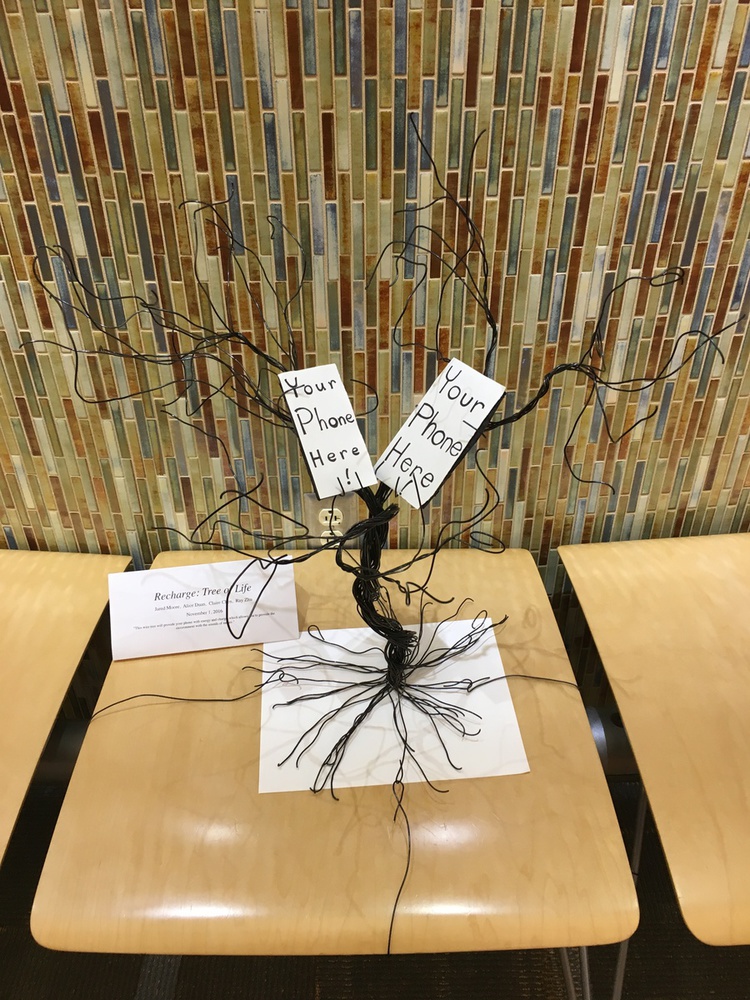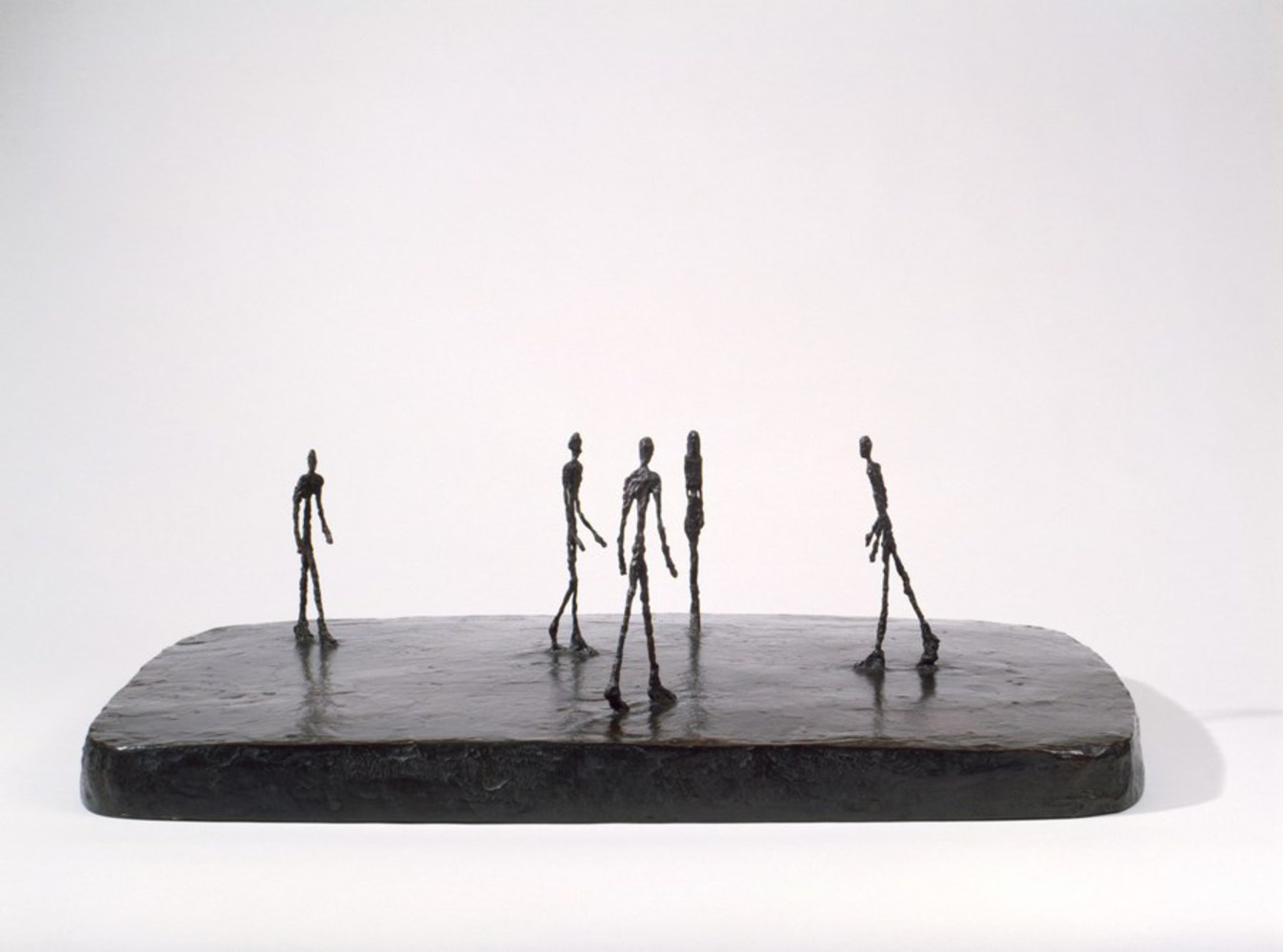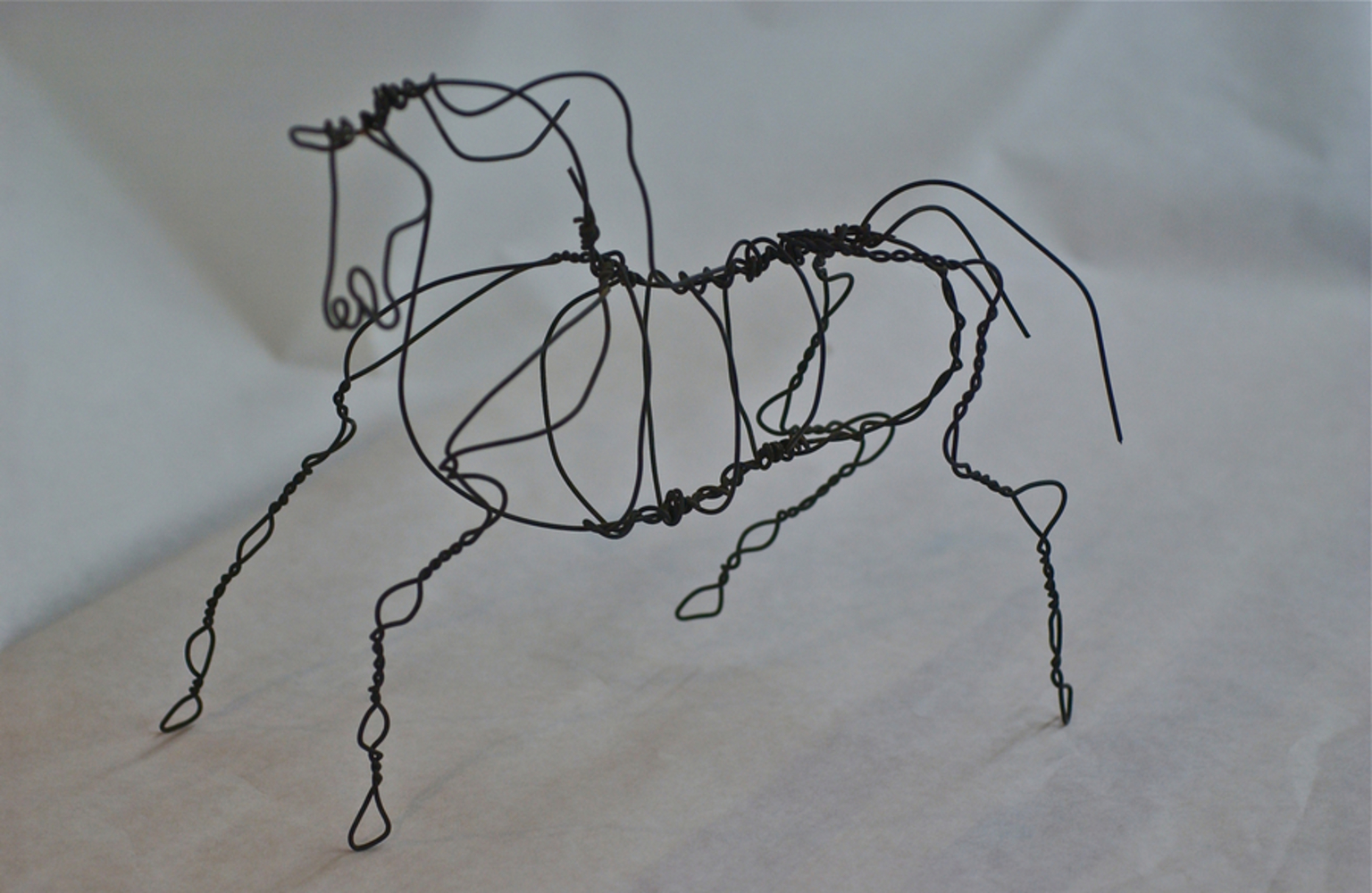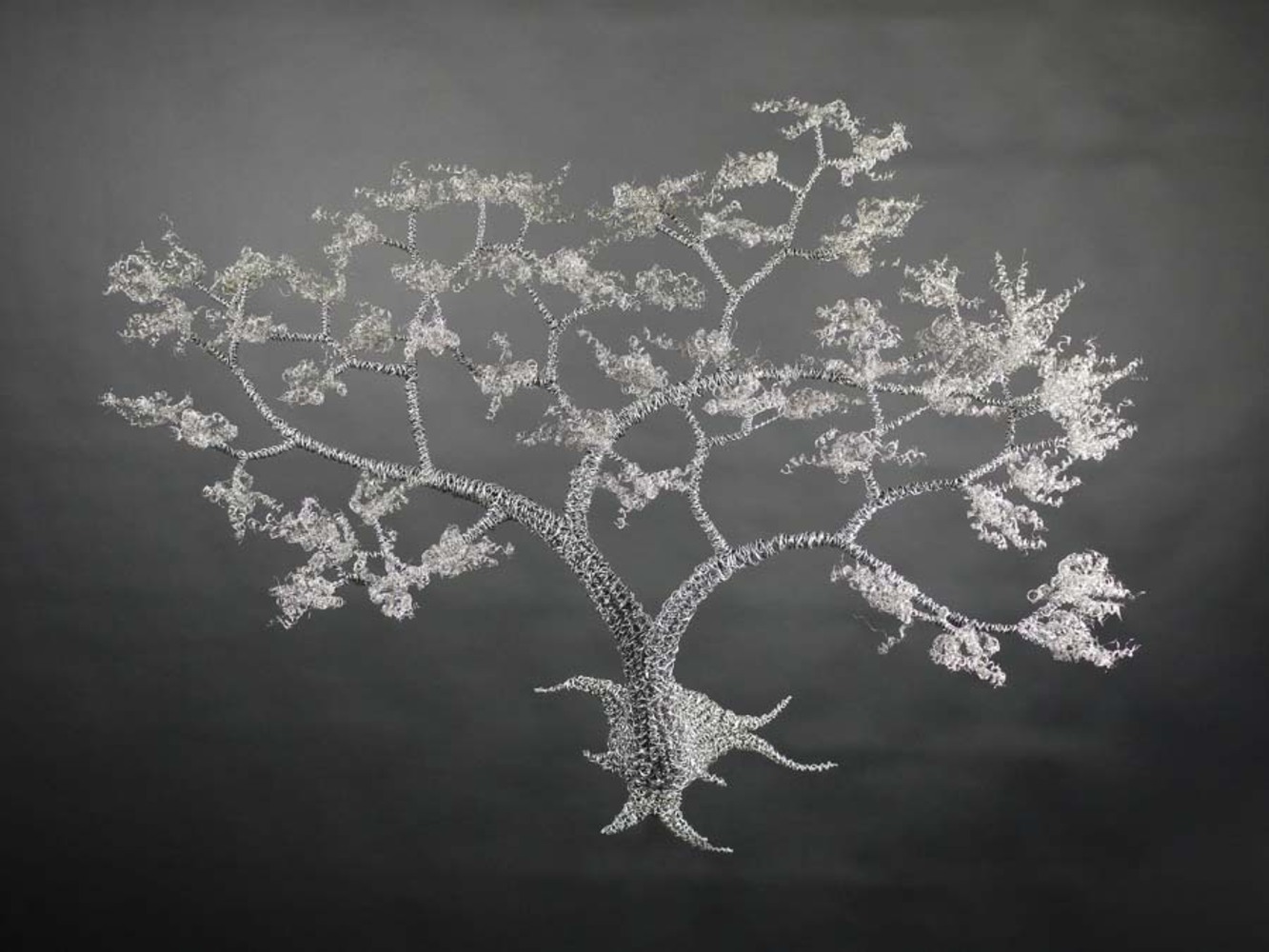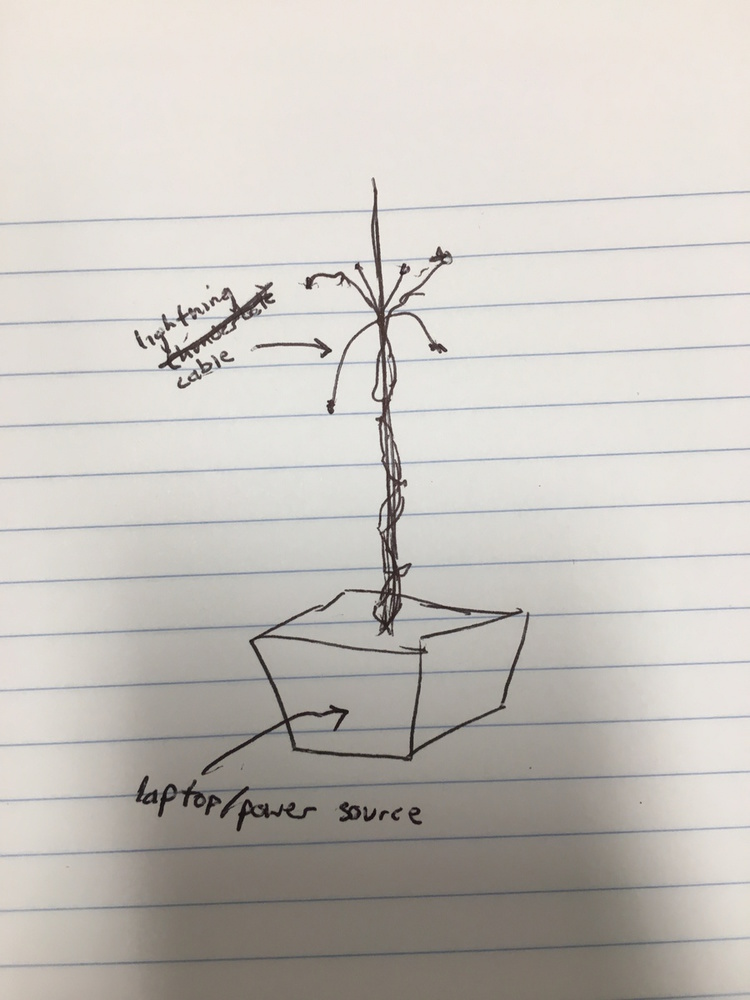Statement
"This wire tree will provide your phone with energy and charge, which allows you to provide the environment with the sounds of nature." The intention of the work is to juxtapose two contrasting concepts: our growing addiction to technology in the digital age and our diminishing appreciation for nature. By plugging in your phone to charge it, you initiate a series of layered bird calls. Two different interpretations of the assigned material wire (steel wire and charging cables) are used in this work so that we could produce a piece which is as focused on the medium as it is on the conceptual aspect. The goal of this work is to serve as a reminder to people not to lose touch with nature, something which would never have been a problem before handheld devices became popular. We take a balanced approach: instead of contrasting all things digital against nature, we want to show that these two things can work in harmony with each other. In our installation, they only exist alongside each other- the sounds don't play unless a phone is plugged in. We want this concept to be something which the audience takes away from interacting with our installation.
